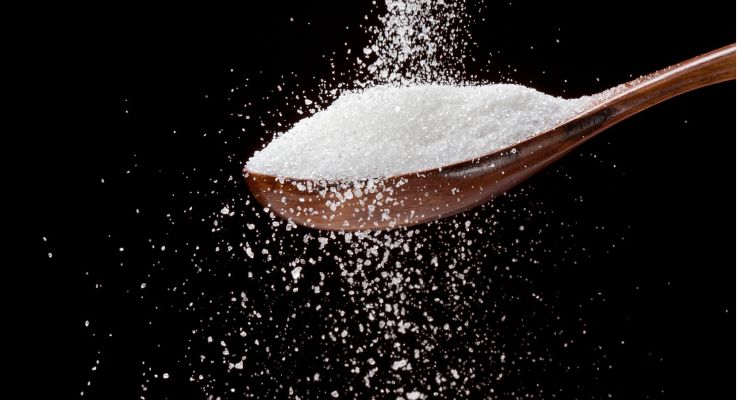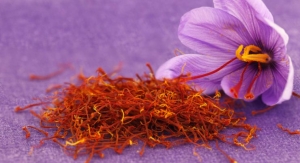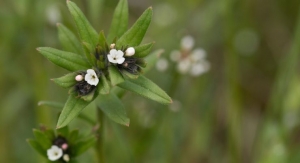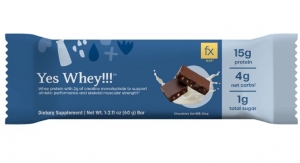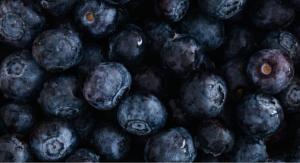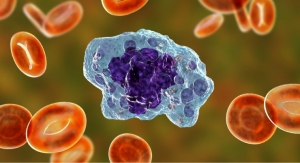06.22.23
Allulose, a rare sugar which naturally occurs in figs, raisins, wheat, maple syrup, and molasses, has a minimal influence on blood glucose and insulin, and reduces glucose and insulin responses when added to table sugar (sucrose). The findings were published in the Journal of Functional Foods.
Allulose has been used as an alternative sweetener, however, there has been longstanding debate around whether using it as a substitute for other types of sugar should qualify products for “no/low/reduced sugar” claims. The Sugar Association, for instance, has filed a petition with the U.S. Food and Drug Administration (FDA) to prohibit such claims on the grounds that they are misleading, given that allulose is a sugar.
Alexandra Jenkins, PhD, and her team at Inquis Clinical Research conducted the study with the goal of comparing glycemic and insulin responses to allulose when it is consumed alone and with a carbohydrate-containing meal. Fourteen men and women without diabetes were given meals on three separate occasions and were studied over a two-hour period following each meal.
One meal contained 15 grams of an allulose branded as Allsweet, another contained 15 grams of Allsweet and 30 grams of sucrose, while the last contained 30 grams of sucrose. Glycemic and insulin responses were measured with a standard blood sample from a finger-prick.
Allulose alone led to minimal increases in glucose and insulin. When allulose was added to 30 grams of sucrose, it lowered the postprandial glucose compared to a meal with sucrose alone. Further, it attenuated the peak rise in insulin compared to only eating sucrose.
According to the authors, this was the first study of its kind to produce such a clinically significant effect, owing to the dosage used being greater than that in previous literature. “We believe this may account for the larger effect we found, but dose-response curves from the data in the literature are ambiguous in this respect,” the authors wrote, concluding that this study will lay the foundational work for further research on allulose’s impact on human health.
As allulose is 70% as sweet as sucrose with 90% less calories, using it to partially replace other sugars would reduce caloric content along with the reduced glycemic and insulin impact.
“The study adds to a growing body of literature on the dampening effects of allulose consumption on glycemic and insulin responses. The results are impressive because allulose does not appear to behave like non-nutritive or low-calorie sweeteners. It appears to be unique in this respect,” said Nick Bellissimo, PhD, Toronto Metropolitan University associate professor and allulose expert. “Allsweet is unique in that it is a naturally occurring rare sugar with the same taste and texture of sucrose but does not effect glycemic response and has a negligible energy content. Given reformulation efforts currently underway to reduce the sugars content of food and beverages, allulose may be well positioned to offer significant functional advantages over other ingredients.”
“Allsweet is an essential weapon in our arsenal to fight back against the negative impact of sugar and non-nutritive sweeteners,” said John Jarmul, vice president of marketing at Anderson Advanced Ingredients, the manufacturer of Allsweet. “Consumers are looking to reduce sugar consumption without sacrificing eating satisfaction. This study sheds some light on the future of allulose. It won’t always be about replacing all the sugar in a formulation, but rather replacing a portion of the sugar with Allsweet, which then mitigates the negative effect of the other sugars.”
Allulose has been used as an alternative sweetener, however, there has been longstanding debate around whether using it as a substitute for other types of sugar should qualify products for “no/low/reduced sugar” claims. The Sugar Association, for instance, has filed a petition with the U.S. Food and Drug Administration (FDA) to prohibit such claims on the grounds that they are misleading, given that allulose is a sugar.
Alexandra Jenkins, PhD, and her team at Inquis Clinical Research conducted the study with the goal of comparing glycemic and insulin responses to allulose when it is consumed alone and with a carbohydrate-containing meal. Fourteen men and women without diabetes were given meals on three separate occasions and were studied over a two-hour period following each meal.
One meal contained 15 grams of an allulose branded as Allsweet, another contained 15 grams of Allsweet and 30 grams of sucrose, while the last contained 30 grams of sucrose. Glycemic and insulin responses were measured with a standard blood sample from a finger-prick.
Allulose alone led to minimal increases in glucose and insulin. When allulose was added to 30 grams of sucrose, it lowered the postprandial glucose compared to a meal with sucrose alone. Further, it attenuated the peak rise in insulin compared to only eating sucrose.
According to the authors, this was the first study of its kind to produce such a clinically significant effect, owing to the dosage used being greater than that in previous literature. “We believe this may account for the larger effect we found, but dose-response curves from the data in the literature are ambiguous in this respect,” the authors wrote, concluding that this study will lay the foundational work for further research on allulose’s impact on human health.
As allulose is 70% as sweet as sucrose with 90% less calories, using it to partially replace other sugars would reduce caloric content along with the reduced glycemic and insulin impact.
“The study adds to a growing body of literature on the dampening effects of allulose consumption on glycemic and insulin responses. The results are impressive because allulose does not appear to behave like non-nutritive or low-calorie sweeteners. It appears to be unique in this respect,” said Nick Bellissimo, PhD, Toronto Metropolitan University associate professor and allulose expert. “Allsweet is unique in that it is a naturally occurring rare sugar with the same taste and texture of sucrose but does not effect glycemic response and has a negligible energy content. Given reformulation efforts currently underway to reduce the sugars content of food and beverages, allulose may be well positioned to offer significant functional advantages over other ingredients.”
“Allsweet is an essential weapon in our arsenal to fight back against the negative impact of sugar and non-nutritive sweeteners,” said John Jarmul, vice president of marketing at Anderson Advanced Ingredients, the manufacturer of Allsweet. “Consumers are looking to reduce sugar consumption without sacrificing eating satisfaction. This study sheds some light on the future of allulose. It won’t always be about replacing all the sugar in a formulation, but rather replacing a portion of the sugar with Allsweet, which then mitigates the negative effect of the other sugars.”

